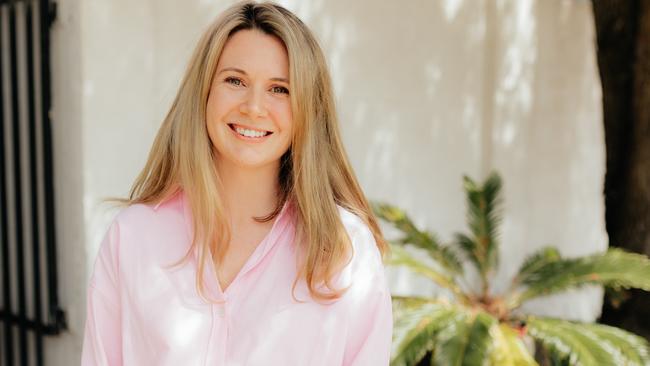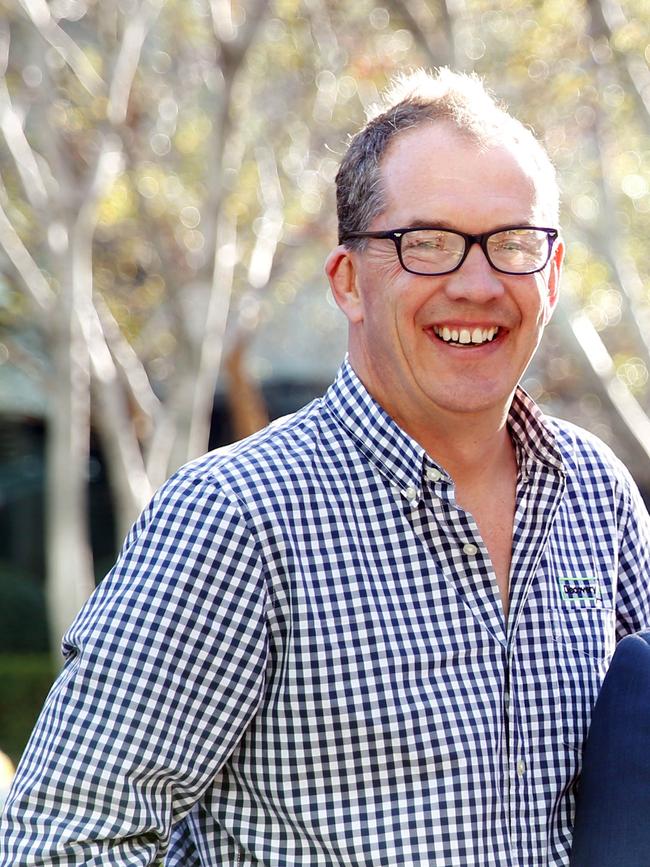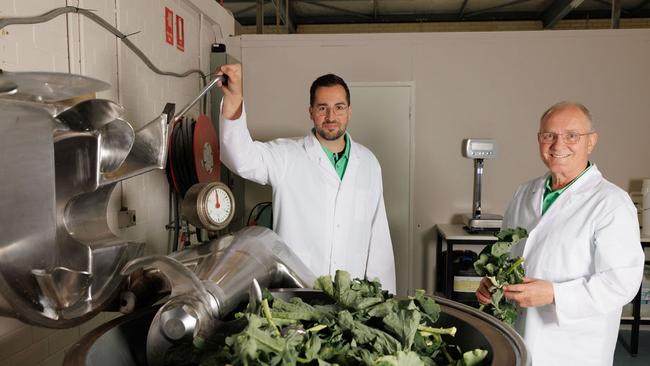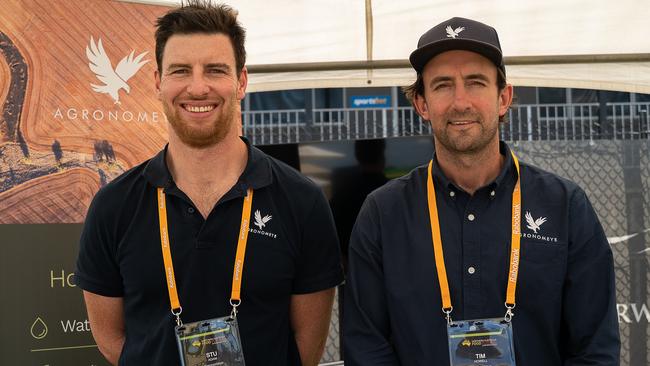Goanna Ag, Whole, Agronomeye: Australian agtech ventures scale up to national and global markets
A collection of agtech start-ups are solving crucial problems for Aussie farmers and food processors. Now they’re taking their solutions to the world.

Imagine if the world’s Valencia orange harvest could be juiced – peel and all – with no waste.
Or if a cotton crop could tell a grower exactly how much water it needed, and when. Or farm topography could be mapped with laser precision down to leaves on trees.
These advances aren’t just what-ifs. The technologies exist, and have been pioneered by Australian start-ups that are ready to take their innovations to the world.
Perth food processing innovator Whole, Queensland irrigation automation pioneer Goanna Ag and LiDar mapping specialist Agronomeye are some of the Aussie agtech ventures that collectively attract hundreds of millions of dollars in backing every year, and are ready to scale up into national and overseas markets.
“Australia’s biggest strength is considered somewhat of a weakness; the scale of the country and our harsh conditions,” says Agronomeye co-founder Stu Adam.
Designing technology to boost agricultural efficiencies here, he says, with our challenging soils, variable climate and tyranny of distance, gives developers a competitive edge.
And they’ll need it, if they want to keep attracting capital in today’s uncertain economic climate.
Global investment in “agri-food tech” lost its shine in 2022, declining by 44 per cent year on year. But Australian start-ups have maintained more appeal, marking just a 24.5 per cent decrease to rake in $US317 million in investment in 2022. The most recent figures for the first half of 2023 show a similar trajectory, with $US146m invested in Australia.
Agri-food tech includes everything from e-grocery platforms to farm robotics. In the “upstream” agtech sector – those used on farm or in food production – numbers buck the downward trend with more than $US190m invested in Australia in 2022, up on $US187m in 2021.

Agrifutures Global Innovation Networks general manager Harriet Mellish says while some sectors have lost steam, there is a surge of interest in solving problems inside the farm gate. “Clearly we have to acknowledge there was a boom around alternative proteins that just didn’t materialise,” Mellish says. “When we look at some of our core agtech … in areas that address challenges that are facing producers, you can still see it thriving.”
Mellish’s team is tasked with ensuring Australia leads in developing, adopting and exporting ag technologies. One of their flagship initiatives is the annual EvokeAg conference. Held in Perth last month, this year’s event attracted delegates from across Australia, Europe, Asia and the Middle East.
“Australia presents a really interesting opportunity internationally,” Mellish says. “We have our rural research and development corporations that invest heavily in research, and also our universities. But actually Australia is far more attractive due to its political stability and our producers being innovative. The fact that we are unsubsidised means that our producers are really exposed to rising input costs, and they have to be really smart in terms of their P & Ls.”
The trick for Aussie entrepreneurs such as Goanna Ag, Agronomeye and Whole, she says, is to pinpoint true on-farm and supply-chain problems and create “a tight feedback loop to make sure that product is fit for purpose”.
Irrigation company Goanna Ag has been innovating on Australian cotton farms for the past 20 years.

Chief development officer John Pattinson explains its pioneering system uses four data collection tools: soil-moisture probes, remote satellite imagery, weather stations and plant-stress sensors.
“It really allows plants to communicate their water needs directly to farmers,” Pattinson says.
The company services about 60 per cent of the scheduled-irrigation cotton market in Australia. Pattinson says of 400,000 hectares planted to cotton here, the vast majority is flood irrigation, which doesn’t have the ability to be automated.
“Think about pressure systems, drips and overhead laterals, those do have potential to automate,” he says. “We might have 90 per cent flood irrigation and 10 per cent pressure systems, but in the US it is the reverse.”
Hence global expansion is a pivotal strategy. Two years ago the company went commercial in Oklahoma and Texas, and is expanding to the Mississippi delta, Arkansas and Missouri. With more than five million hectares of cotton planted in the US, and 1.6 million of that irrigated, the potential is huge.
“What we know about Australian cotton production is it is extremely volatile, despite what opponents might say,” Pattinson says. “So when we grow 400,000 hectares, it is when there is sufficient water to do so. When there is insufficient water, the crop declines significantly … So for us (expansion to the US) is risk management.”

For West Australian start-up Whole, international markets have been part of scale-up plans from inception.
Co-founders Nick Stamatiou and Cedric Cross have developed technology that “explodes” produce at a cellular level using up to 3000 bar of pressure, to convert 100 per cent of a crop into a powdered ingredient, maintaining taste and nutritional value.
“We say we are eliminating food waste,” Stamatiou says, “but most waste (in food processing) is fibre or cellulose. We are making it so small you can incorporate that into anything.”
The process has gained huge interest from companies including Kerry Group, Noumi, Simplot, Kraft Foods, Heinz and Dole, with clear applications in oat, soy and other alternative milk manufacturing as well as juice production.

For mapping service Agronomeye, expansion across Australia is more lucrative than global markets currently. Founded by Stu Adam and former airline pilot Tim Howell, Agronomeye uses aeroplane-mounted LiDar sensors to map farm topography and vegetation coverage, showing biodiversity and habitat conditions, capital improvements, and even how water flows over a landscape.
In the past year, it has partnered with carbon project management company RegenCo to map 1.1 million hectares in Central Australia, and struck a deal with Virtual Tas to map every farm in Tasmania.

NSW Merino breeders Pen and Nick Gay have mapped their 4300-hectare sheep and cattle property twice using the technology; as a baseline in 2019 and more recently as part of a Hovells Creek Landcare project to manage erosion.
Pen Gay says the technology shows how their canopy coverage has changed, allows them to make better infrastructure investments, and gives them a way to prove their environmental and animal-welfare credentials.
“It is an incredible planning tool in terms of making things visible that aren’t currently visible,” Gay says. “It also gives you the ability to report and share that information seamlessly with brands and throughout the supply chain.”
While she is yet to see a direct return in market premiums for their wool or meat as a result, Gay says the biggest test of the tech will be how well-suited it is to their farming and market conditions.
“I think farmers are a very practical bunch of people. They need to see (agtech) is really obviously relevant,” she says.
Mellish says Agrifutures is working hard in Australia to help farmers trial and adopt agtech.
“We can’t do anything without producers in mind. The whole ecosystem falls down if we don’t have one eye on what’s happening on farm. At our core, we want to work on initiatives that support producer capacity to adopt, access and innovate themselves.”




